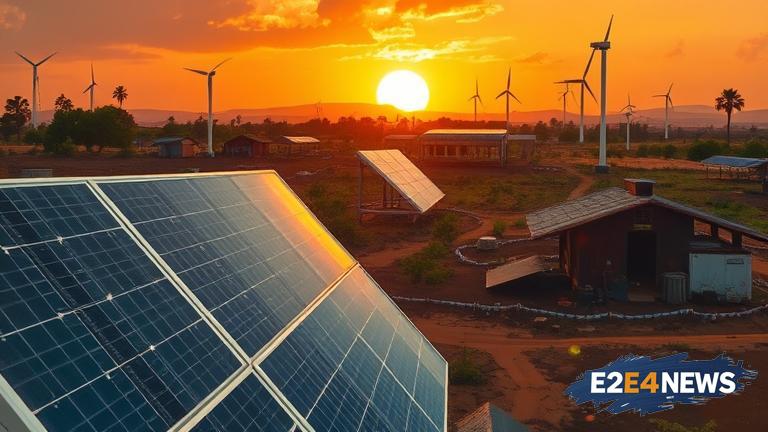The African continent is witnessing a significant shift towards renewable energy, driven by the need to address the pressing issues of energy access, energy security, and climate change. With many countries still relying heavily on fossil fuels, the transition to cleaner energy sources is crucial for sustainable development. According to recent reports, Africa’s renewable energy capacity has increased substantially over the past decade, with solar and wind power leading the charge. This growth is attributed to declining technology costs, improved energy storage capabilities, and favorable policy frameworks. Governments across the continent are implementing supportive policies and regulations to encourage investment in the renewable energy sector. For instance, countries like South Africa, Egypt, and Morocco have set ambitious renewable energy targets, aiming to increase their share of clean energy in the overall energy mix. The private sector is also playing a vital role in driving the renewable energy revolution, with companies investing heavily in solar and wind farms, as well as other clean energy technologies. Furthermore, international organizations and development banks are providing financial support and technical assistance to help African countries develop their renewable energy infrastructure. The benefits of renewable energy are numerous, including reduced greenhouse gas emissions, improved air quality, and enhanced energy security. Additionally, the renewable energy sector is creating new job opportunities and stimulating local economies. However, despite the progress made, significant challenges remain, including the need for greater investment, improved infrastructure, and enhanced energy storage capabilities. To overcome these challenges, African countries must continue to work together, sharing knowledge, expertise, and best practices to accelerate the transition to a low-carbon economy. The African Union’s Agenda 2063, which emphasizes the importance of sustainable energy development, provides a framework for cooperation and coordination among member states. Moreover, regional initiatives, such as the African Renewable Energy Initiative, are helping to mobilize resources and support the development of renewable energy projects. As the continent continues to urbanize and industrialize, the demand for energy is expected to increase, making it essential to prioritize renewable energy development. In conclusion, Africa’s renewable energy revolution is gaining momentum, driven by a combination of government support, private sector investment, and international cooperation. With continued efforts to address the challenges and barriers to development, the continent is poised to become a leader in the global transition to a low-carbon economy. The future of renewable energy in Africa looks promising, with the potential to create a more sustainable, equitable, and prosperous future for all. As the world continues to grapple with the challenges of climate change, Africa’s renewable energy revolution serves as a beacon of hope, demonstrating the potential for sustainable energy development to drive economic growth, improve livelihoods, and protect the environment. The African renewable energy market is expected to continue growing, driven by declining technology costs, improved energy storage capabilities, and increasing demand for clean energy. In the coming years, we can expect to see significant investments in solar, wind, and other clean energy technologies, as well as the development of new energy storage and grid management systems. Ultimately, the success of Africa’s renewable energy revolution will depend on the ability of governments, private sector companies, and international organizations to work together to address the challenges and barriers to development, and to create a supportive policy and regulatory environment that encourages investment and innovation in the sector.
